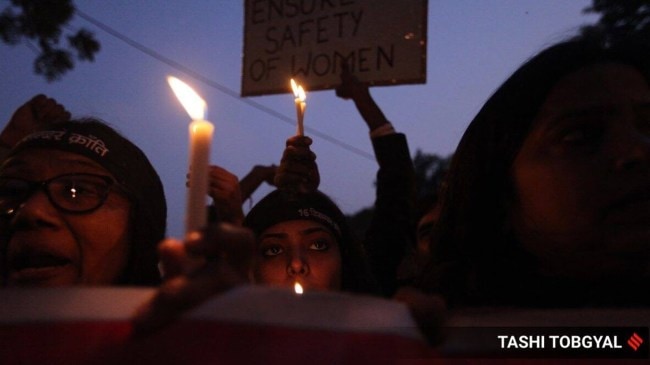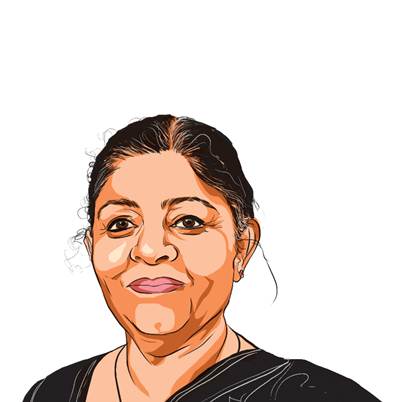Opinion Across India, sexual violence prevails, with impunity. It’s not just a legal problem
India has laws. But laws are only as good as the systems that uphold them—and the values that animate them. A society that tolerates impunity, blames victims and protects the powerful cannot claim to be just
 We must acknowledge that structural violence—expressed through unequal access to justice, healthcare, and safety—is itself a form of harm.
We must acknowledge that structural violence—expressed through unequal access to justice, healthcare, and safety—is itself a form of harm. Sexual violence in India erupts in the headlines every few weeks — only to fade quietly from public conversation. But while the news cycle moves on, the violence does not. For many women and girls, the threat is constant, and justice remains out of reach.
Recently, on May 29, a 20-year-old college student in Odisha was gang-raped by 10 men — including four minors — on Gopalpur beach. In Bihar last month, four juveniles were detained for the alleged gang rape of a 15-year-old girl who is now reportedly pregnant. In Udaipur, a few days ago, the casting director of an advertisement shoot was arrested for allegedly raping a French tourist. These tragedies may be from different parts of the country, but they are not isolated. They are part of a pattern—one that points to systemic failure, deep-rooted impunity, and a culture that too often protects perpetrators while silencing survivors.
These incidents are symptoms of a deeper malaise where the bodies of women and girls, especially from marginalised communities, become battlegrounds of control, coercion, and dominance. And when survivors dare to speak, they are often met not with support but with disbelief, delay, or danger.
National data confirms the scale of the problem. According to the National Family Health Survey (NFHS-5), nearly one in three ever-married women aged 18-49 have experienced physical, sexual, or emotional violence from their intimate partners. In states like Bihar, that figure rises to nearly one in two. Only 14 per cent of those who face violence seek help from institutional sources such as the police or social workers. Silence is not accidental — it is learned, imposed, and enforced.
More disturbing still is how normalised this violence remains. NFHS-5 reveals that 37 per cent of women and 34 per cent of men believe a husband is justified in hitting or beating his wife under certain circumstances. These include going out without telling him, arguing, or disrespecting in-laws. Even among the highly educated, one in four agree. This tells us that violence isn’t just perpetrated, it’s rationalised, internalised, and quietly sanctioned.
Meanwhile, survivors are forced to navigate systems that compound their trauma. Police stations that question their integrity. Courts that demand “proof” of pain. Medical protocols that ignore psychological harm. In many cases, perpetrators with political, caste, or social power walk free while survivors fight for credibility.
Approaching sexual violence as a systemic failure
We must stop treating sexual violence as an anomaly. It is a systemic failure — one that cannot be solved through punishment alone. It demands urgent, coordinated responses across law enforcement, healthcare, education, and community leadership.
First, we must build crisis response systems that are gender-sensitive by design. Police, public health workers, and shelter homes must be trained to identify, prevent, and respond to violence with empathy and urgency. Protocols must be put in place to ensure safe reporting, trauma-informed care, and protection for those who come forward.
Second, we must acknowledge that structural violence—expressed through unequal access to justice, healthcare, and safety—is itself a form of harm. When a Dalit woman cannot report rape for fear of reprisal, or when a girl is pulled out of school after a sexual assault, the system is failing not just her but its constitutional promise of dignity and equality.
Equally important is prevention. We must challenge the cultural norms that allow violence to be minimised or justified in the first place. Changing how men and boys understand power, consent, and masculinity is essential. Ending sexual violence isn’t just about supporting survivors — it’s about preventing harm before it occurs. Sustained social and behaviour change communication (SBCC) efforts are critical to this transformation. For example, the campaign Desh Badlega, Jab Mard Badlega—which works to engage men as allies—recognises that shifting attitudes among boys and men is key to long-term prevention. These efforts are not optional; they are foundational to a safer, more equitable society.
India has laws. But laws are only as good as the systems that uphold them—and the values that animate them. A society that tolerates impunity, blames victims and protects the powerful cannot claim to be just.
We need to reimagine justice not just as courtroom conviction but as the freedom to walk without fear, to speak without shame, and to live without violence. That is what every woman and girl deserves.
The writer is executive director of Population Foundation of India






